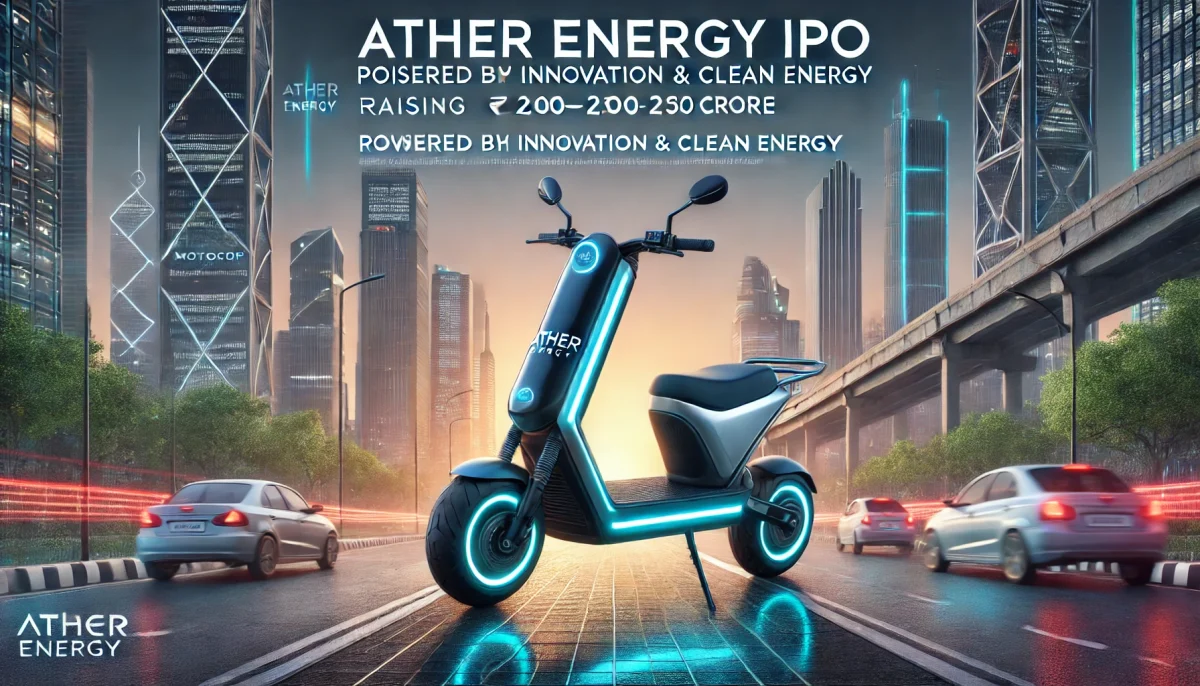Ather Energy Converts Preference Shares Into Equity: Poised for IPO in April 2025
Ather Energy, one of India’s leading electric vehicle (EV) startups, has recently made a strategic move by converting its preference shares into equity, a decision that is paving the way for the company’s Initial Public Offering (IPO), which is expected to launch in April 2025. This financial restructuring is part of Ather’s broader strategy to align its capital structure with public market standards, making the upcoming IPO a highly anticipated event for investors in the electric vehicle market.
What Does Converting Preference Shares Into Equity Mean?
In corporate finance, preference shares are typically issued to early investors or venture capital firms, offering them certain advantages like priority in dividend payouts and claims during liquidation. By converting these preference shares into common equity, Ather Energy is simplifying its capital structure and positioning itself to attract more institutional investors and retail investors as part of its IPO launch. This move also ensures that the company is fully aligned with public market expectations before it lists on the stock exchange.
This conversion to equity is an essential step as Ather Energy prepares for its public offering, making its financial reporting more transparent and appealing to potential investors interested in the rapidly growing electric vehicle sector.
Ather’s Growing Position in the EV Market
Founded in 2013 by IIT graduates Tarun Mehta and Swapnil Jain, Ather Energy is at the forefront of India’s electric mobility revolution. With its flagship products like the Ather 450X and the Ather 450 Plus, the company has quickly captured significant market share in India’s competitive electric two-wheeler market. Known for its innovative technology and premium design, Ather’s scooters are equipped with smart features, long battery range, and fast charging capabilities that appeal to modern consumers.
The company has also been focused on expanding its EV charging network across India, aiming to make it easier for customers to adopt electric vehicles and reduce range anxiety. As a result, Ather Energy has become a key player in India’s sustainable transportation landscape, attracting significant funding from investors like Hero MotoCorp and Accel.
Why the IPO?
The decision to go public through an IPO is a pivotal move for Ather Energy, which intends to raise substantial capital for scaling its manufacturing operations, accelerating R&D for next-generation electric vehicles, and expanding its sales and service network across India. By listing on the stock market, Ather Energy aims to enhance its brand visibility and position itself as a leader in India’s electric vehicle industry. The IPO is expected to be a major event in the Indian EV market, attracting both green investors and those looking to capitalize on the long-term growth potential of the clean energy sector.
Additionally, the funds raised will help Ather Energy explore international expansion opportunities, particularly in regions with growing demand for electric mobility, such as Europe and Southeast Asia. The capital could also help the company diversify its product portfolio to include new electric scooters and even electric cars, expanding its reach in the electric mobility market.
Investor Interest and Market Outlook
With the Indian electric vehicle market expected to grow at a rapid pace in the coming years, Ather Energy’s IPO is likely to generate significant investor interest. The Indian government’s push toward sustainable transportation, coupled with stricter emission regulations, is driving the shift toward electric mobility. As a result, companies like Ather Energy are poised for growth in the green economy, with a growing customer base looking for clean, affordable, and efficient electric vehicles.
Analysts predict that Ather Energy’s post-IPO valuation could see substantial growth, particularly if the company continues to innovate with connected vehicle technology, battery solutions, and charging infrastructure. Investors will be watching closely to see how Ather can compete with other electric vehicle startups and established players in the market, such as Ola Electric, Bajaj Auto, and TVS Motor Company.
Challenges Ahead for Ather Energy
Despite its strong position, Ather Energy faces several challenges as it scales. While the EV industry in India is growing, it still faces hurdles such as limited charging infrastructure, range anxiety, and high upfront costs for consumers. Furthermore, as more automotive giants and startups enter the electric vehicle space, Ather will need to differentiate itself through customer-centric innovation and by expanding its after-sales service offerings.
The company will also need to navigate regulatory challenges as governments around the world begin to implement more stringent regulations on electric vehicle standards and battery safety. Addressing these challenges will be key to Ather’s success post-IPO.
Conclusion
Ather Energy’s decision to convert preference shares into equity is a key step as it prepares for its IPO in April 2025. With the IPO, Ather Energy is positioning itself as a leader in the electric vehicle market, looking to raise funds for expansion and capitalize on the growing demand for electric mobility in India and abroad. Investors will be closely monitoring the company’s progress and strategies in the coming months to see how it will maintain its competitive edge in a rapidly evolving market.
As the company moves towards becoming a publicly traded entity, Ather Energy’s performance will be seen as a bellwether for the future of the electric vehicle industry and the shift toward sustainable transportation.


